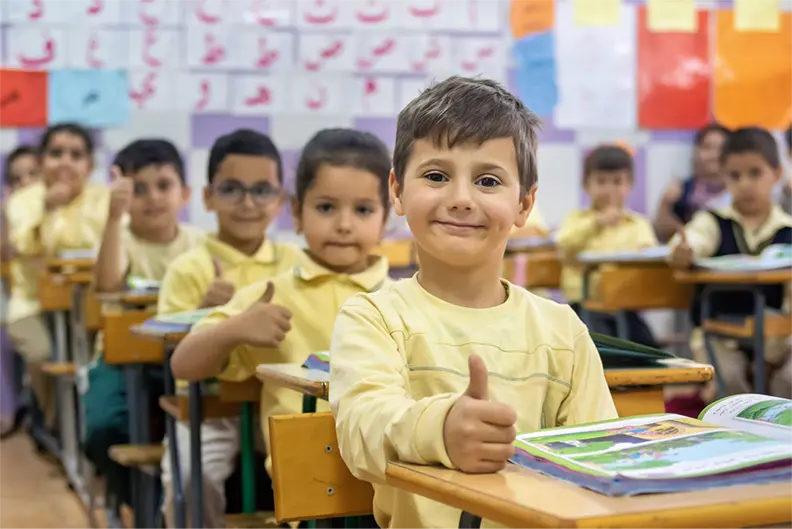We're proud to be supporting #iwillWeek, joining with partners across the UK in celebrating the power of youth social action. Learn more at iwillorg.uk
Over nearly a decade of work helping young people build the essential skills they need to succeed, we’ve seen how important it is to link the skills built in class with the real world. We’re committed to preparing children to succeed both in school and outside it, so we are constantly exploring how to make students think beyond their own classroom. This crucial idea is captured in the last of the six principles that underline our approach: ‘Bring it to life.’
One of the most effective ways we bring essential skills education to life is by developing skills as part of larger-scale collaborative Projects, placing young people into a context where their individual actions contribute to a larger whole. These Projects, which take place over multiple sessions, frequently involve researching the local community and discovering how to make a positive difference. We believe practical engagement like this is one of the most effective ways to teach essential skills.
.JPG)
Our Doing Good project, for example, explores taking an active role in school life by designing, planning and running a fundraising activity. A series of tasks introduces younger learners to some of the challenges facing the world at large, helping them to understand that their actions can make a genuine difference if planned well. Students research different charities and their effectiveness, plan an exciting event to raise money and think about the best ways to encourage people to attend. The Project encourages young people to make the most of their talents helping others – all while building new Problem Solving, Teamwork and Aiming High strategies that will serve them well into the future.
More focused examples include Active Minds, where students learn how to keep fit before developing their own exercise class attended by parents or younger children; Making Changes, where students design a campaign to make their school and community healthier; and Going Green, where students look at the different ways to protect the environment and explore practical solutions they can implement in their own school.
In each of these cases, young people learn both to consider needs of the wider world beyond themselves, and realise their own potential to make a tangible difference. The eight essential skills they develop through our Projects and Challenge Days, and through our wider work facilitating inspiring school Trips to local employers, are a vital part of preparing young people for real-world success and fulfilment in the future. With mastery of these skills,young people can forge their own path and make the most of their potential –even in the face of intractable problems and unfamiliar situations.

That’s why we agree wholeheartedly with the message of the #iwill campaign that we must empower young people to engage actively with their communities. After all, doing so has clear benefits in every direction: it improves educational outcomes, prepares young people to be successful in the workplace, and helps to hone the talents and passions of a new generation of socially-engaged citizens.





